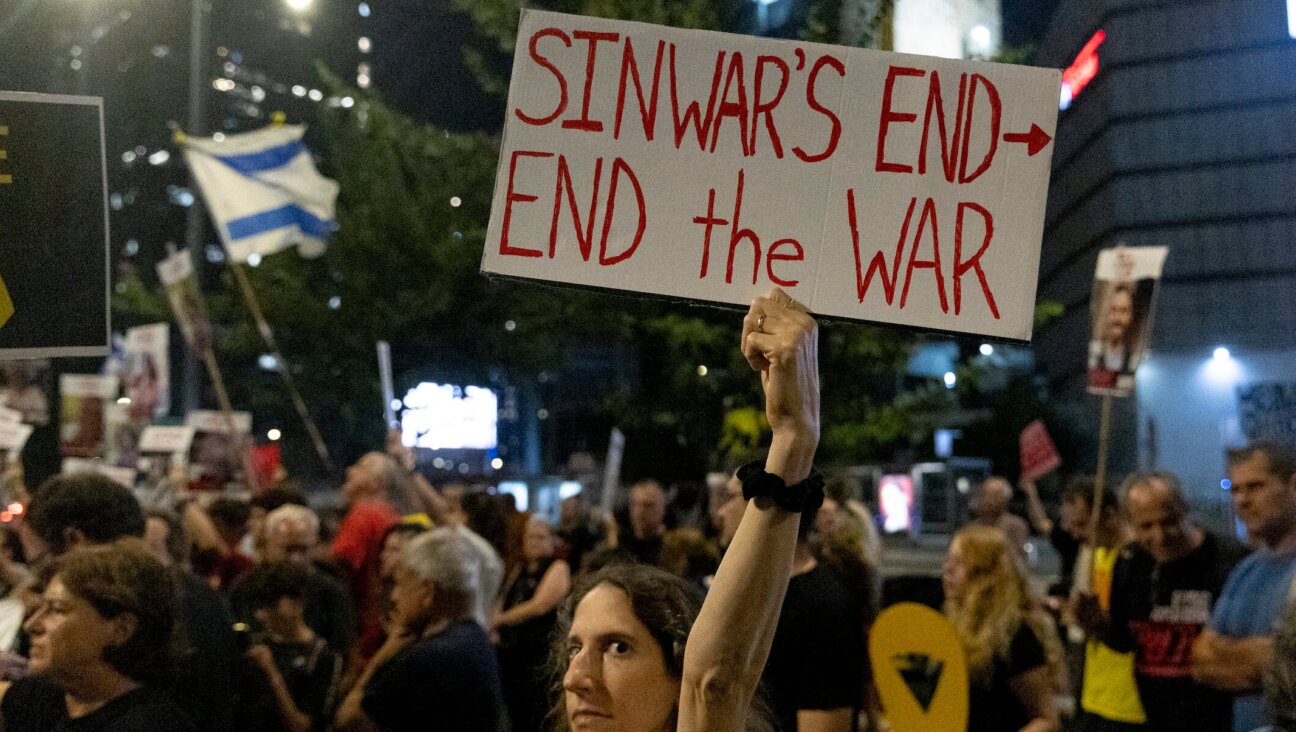Staying the (Jewish Feminist) Course
This is the sixth entry of an ongoing series exploring Jewish feminism.
How I became a feminist and why I have remained one for 40 years are two different stories.
In December 1962, returning home from the lecture circuit, my husband purchased for me Betty Friedan’s “The Feminine Mystique” at an airport bookstore. This was my introduction to women’s lib, as we called it then, and I shuttled between three reactions: exhilaration, wide-eyed wonder and suspicion. Throughout the next decade, I watched — and grew — from the sidelines. Incidents of inequity that heretofore would not have given me a moment’s pause were now being played against a new canvas. Intellectually, I knew that feminism was about justice.
My husband figured prominently in the process. He may eat the same breakfast every morning, but when it comes to new ideas, he is the most open, adventurous, fair-minded person I know. As a young rabbi, he was not afraid to introduce to his congregants, myself among them, the heady idea of women’s equality within the boundaries of Jewish law, orhalacha — the definition of Orthodox feminism.
But still I watched.
Then, in 1973, a singular event propelled me forward. I was invited to the First National Jewish Women’s Conference. The preparation, the conference sessions, the cohorts, the teachers, the ritual — the total experience charted me on a new path and changed the course of my life. Bringing gender equality to Orthodoxy became my work and my passion, second only to raising a Jewish family with covenantal responsibilities.
But how could a mild mannered yeshiva girl, by then a fulfilled rebbetzin, feel so positively disposed to this new task? On paper, I would surely have been the least likely person to become an active feminist. And how could I have stayed with this mission for so long?
My upbringing had a great deal to do with it. My father, zichrono livracha, loved his Judaism, intellectually and deep in his bones. He communicated to my sisters and me how great a treasure was the tradition we inherited. As I began to embrace the values of feminism, it was emotionally unthinkable that I would walk away from Orthodoxy as others did in their struggle for equality. My mother was the most unrelentingly truthful person I knew. Where inequity existed, how could I not call a spade a spade and where injustice was obvious, how could I not rise to eliminate it?! This combination — a father who would brook no criticism of Judaism and a mother who would take no prisoners —would come together as I tried to engage a critical eye and a loving heart regarding equality in Orthodoxy.
I have stayed the course, not feeling burned out as did so many early feminists, because I have witnessed unbelievable gains during the past 40 years, the blink of an eye as Jews count time. There have been benchmarks in all areas — liturgy, life cycle, leadership roles, even language — and especially learning. These changes have upgraded the whole community; they feel authentic and continuous; they have filtered down to the new generations, altering expectations of girls and boys regarding women’s roles.
Another reason I remain committed is that there is still so much to do. Though we seem to be at a threshold of progress in many areas, full justice still eludes us. Acceptance of [Orthodox female rabbinic leadership][2] is one area. Systemic halachic resolution to the agunah problem is another. I want to see these things to completion in my lifetime, so I’m not ready to check out.
I believe that Orthodoxy can sustain distinctive yet equal roles for men and women but not sustain inequitable status. Part of the new frontier is to define these categories clearly as we plan strategies for the future.
For this challenge, too, I feel blessed.
Blu Greenberg is an author, community activist, and founder of JOFA, the Jewish Orthodox Feminist Alliance. Her books include “On Women and Judaism” and “How to Run a Traditional Jewish Household.”
A message from our Publisher & CEO Rachel Fishman Feddersen

I hope you appreciated this article. Before you go, I’d like to ask you to please support the Forward’s award-winning, nonprofit journalism during this critical time.
We’ve set a goal to raise $260,000 by December 31. That’s an ambitious goal, but one that will give us the resources we need to invest in the high quality news, opinion, analysis and cultural coverage that isn’t available anywhere else.
If you feel inspired to make an impact, now is the time to give something back. Join us as a member at your most generous level.
— Rachel Fishman Feddersen, Publisher and CEO
























